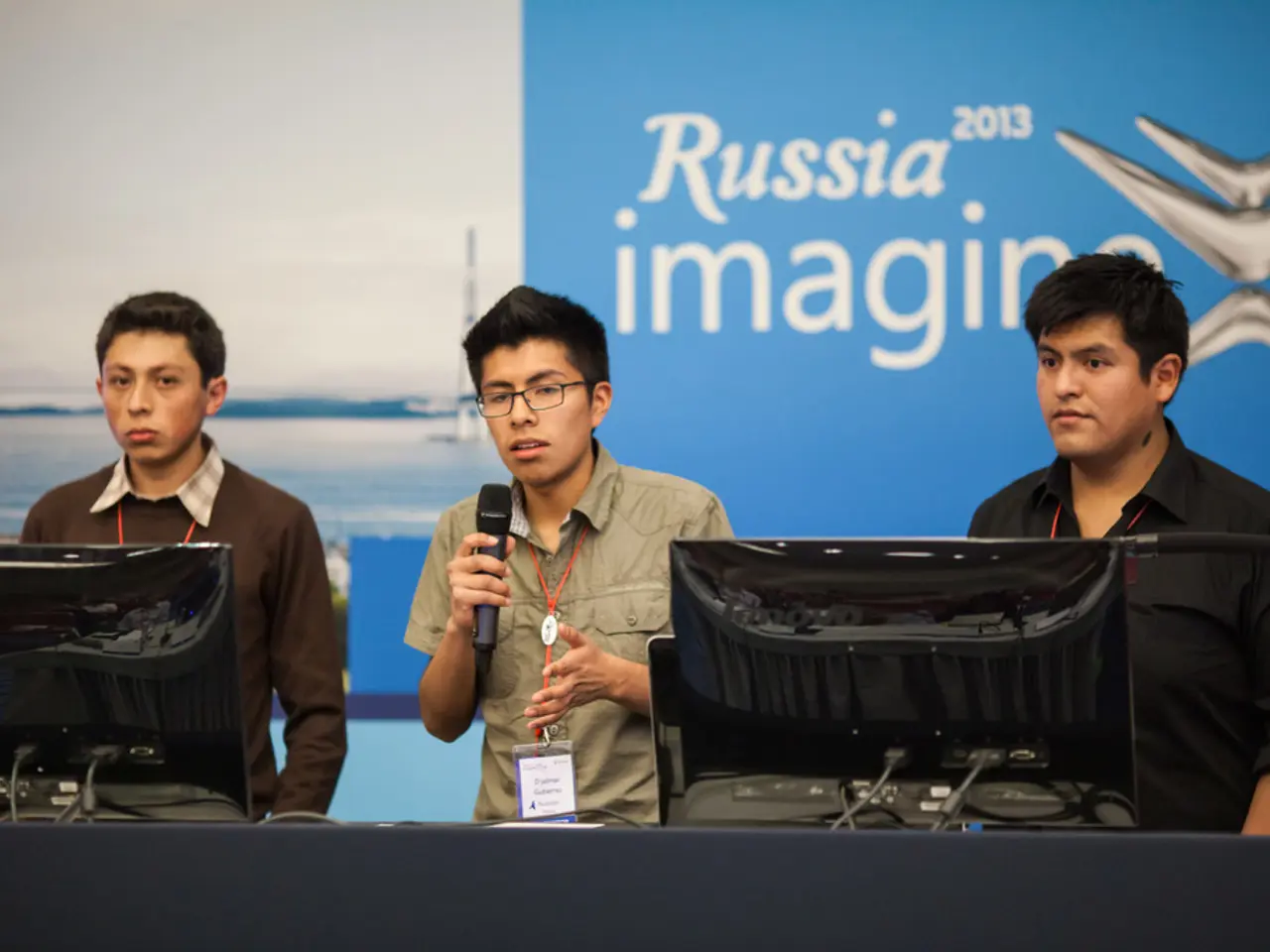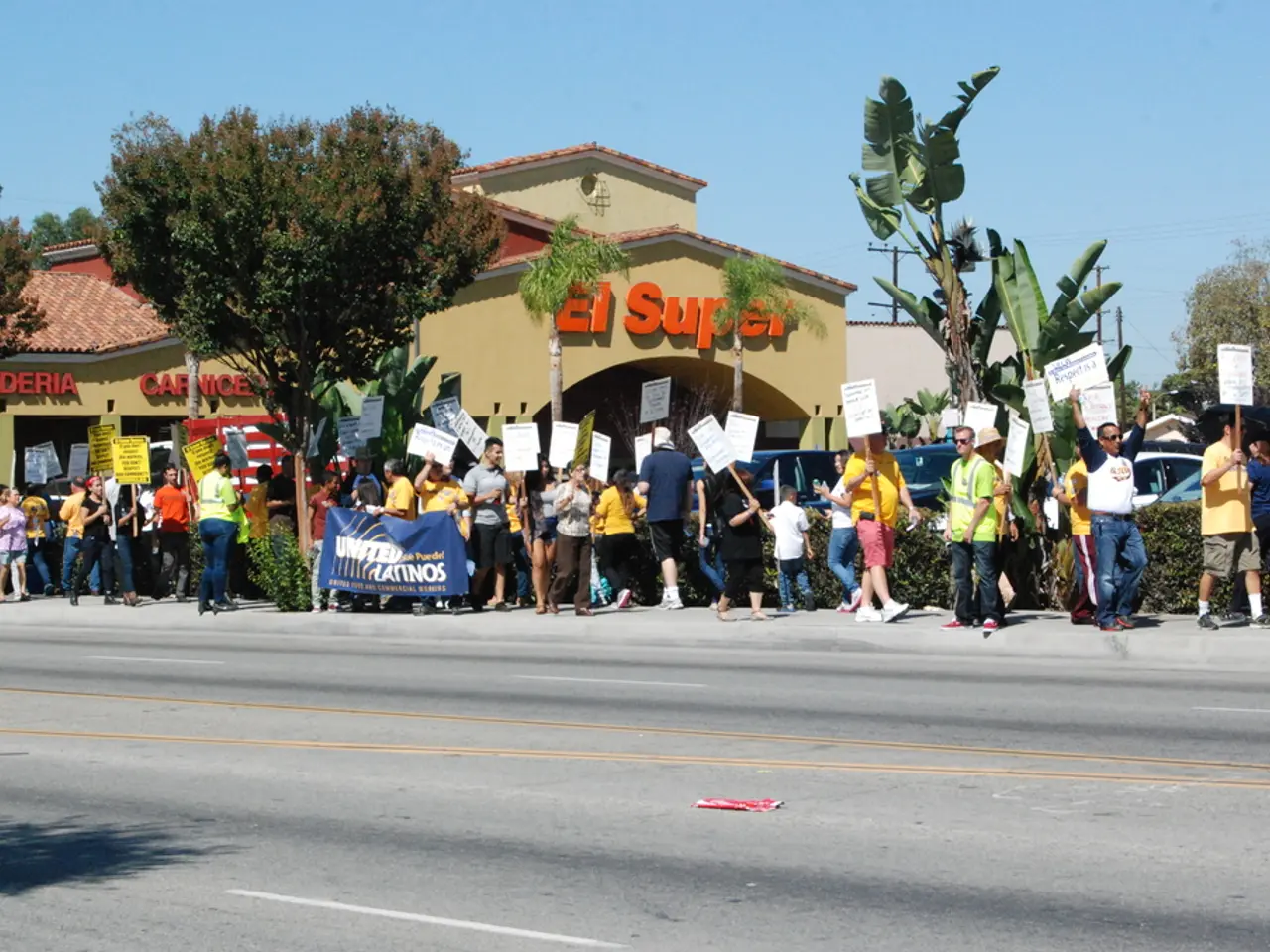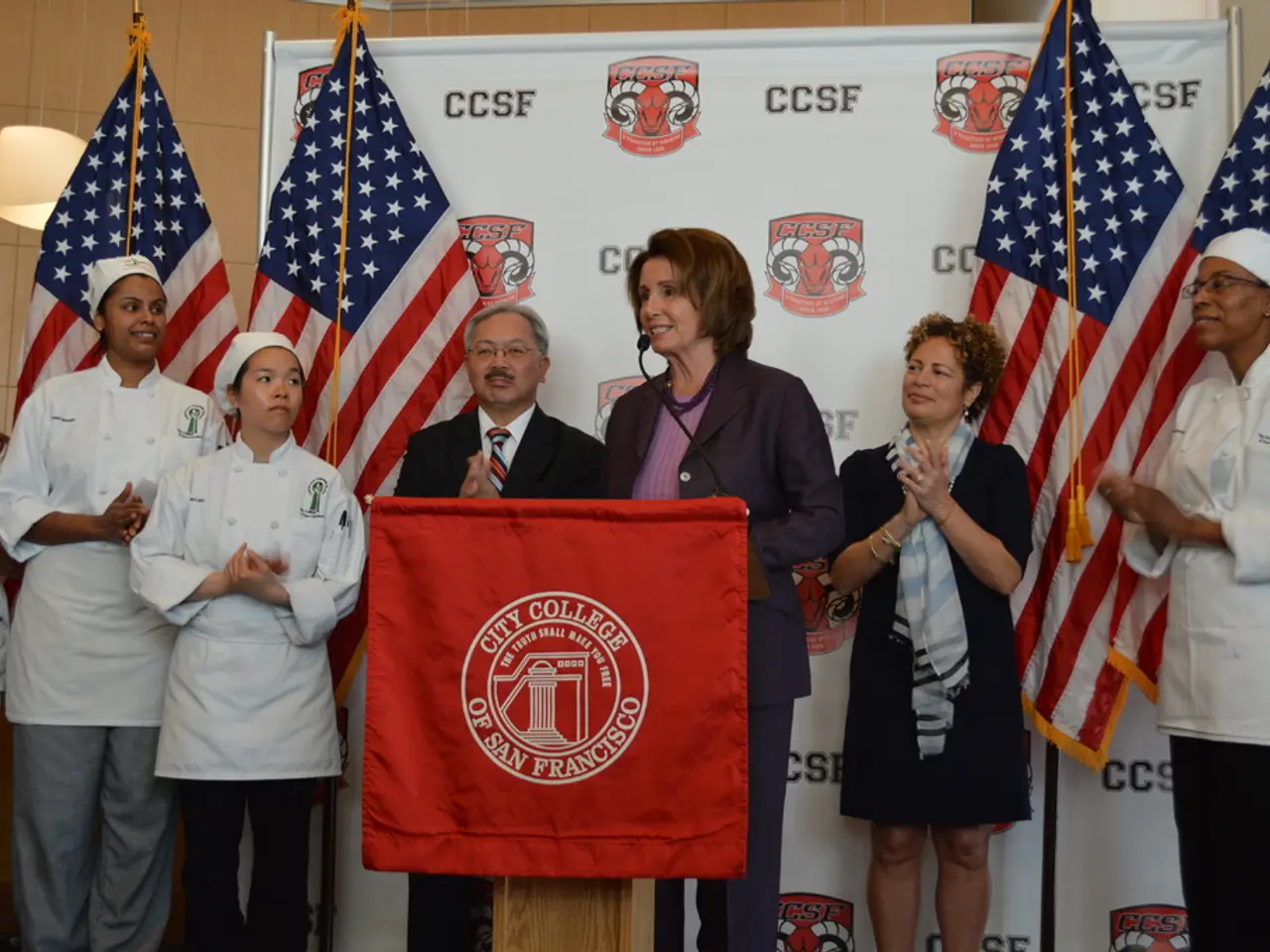Asylum agreement may undergo revisions, according to Ricarda Lang's expectations
In the ongoing debate about asylum reform in Germany and the European Union (EU), key players such as Chancellor Olaf Scholz, Federal Interior Minister Nancy Faeser, and the Greens are advocating for different positions.
The Greens are pushing for stronger refugee protections and systemic reforms, opposing deportations to third countries with poor human rights records and advocating for humane asylum procedures. However, internal disagreement within the Greens arises over the extent and nature of asylum policy changes.
Chancellor Scholz and Minister Faeser, representing the federal government, hold a more cautious or opposing position. They support maintaining stricter rules and external controls to manage migration flows, reflecting a more security- and order-focused approach.
The current asylum agreement, according to the Greens' leader, Ricarda Lang, does not alleviate suffering at the external borders or establish orderly procedures. Lang has also highlighted a lack of a truly binding distribution mechanism in the current agreement. In contrast, Scholz defends the planned EU asylum reform, stating that it aims to establish a solidarity mechanism.
The proposed reform is causing heated debate within the Greens, particularly between the left and realpolitikers. Union politicians are demanding that the federal government take its own measures against illegal migration before the new EU-level rules come into effect.
Negotiations for the reform will take place in the trilogue and with the European Parliament. Ricarda Lang has stated that the Greens will discuss the issue at their party conference. The co-chair of the Greens made this statement on the ARD program Report from Berlin.
Lang has expressed a desire for an exception for children in the asylum agreement. The controversy within the Greens reflects the broader challenges in the EU asylum debate, which includes procedural backlogs, legal rulings confirming member state obligations to asylum seekers, and controversial national measures affecting refugee rights.
This dynamic reflects a balance of humanitarian concerns, political pragmatism, and legal obligations shaping the ongoing EU asylum compromise debate. The outcome of these negotiations will significantly impact the future of asylum seekers in Germany and across the EU.
The Greens are advocating for stronger refugee protections and systemic reforms, opposing deportations to third countries with poor human rights records and pushing for humane asylum procedures, as highlighted by Ricarda Lang, the Greens' leader. On the other hand, Chancellor Scholz and Minister Faeser, representing the federal government, support maintaining stricter rules and external controls, reflecting a more security- and order-focused approach. This debate, particularly between the Greens' left and realpolitikers, is causing heated discussions during the negotiations for the EU asylum reform, which will take place in the trilogue and with the European Parliament, and will significantly impact the future of asylum seekers in Germany and across the EU.







